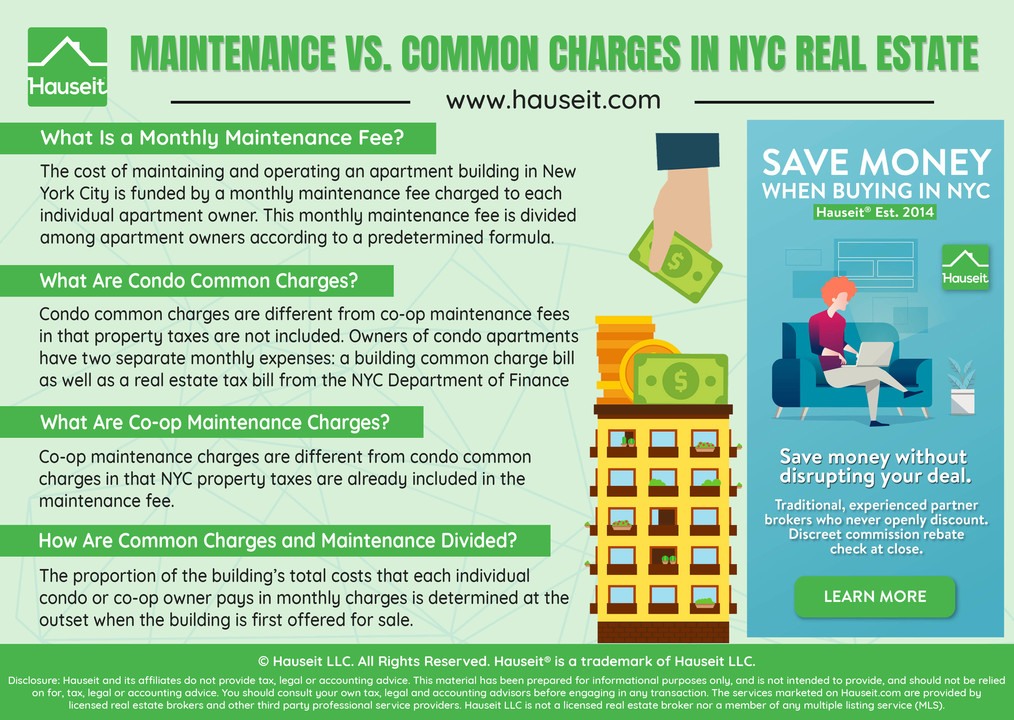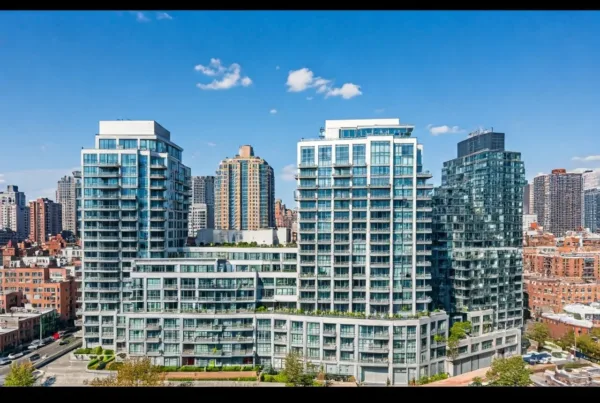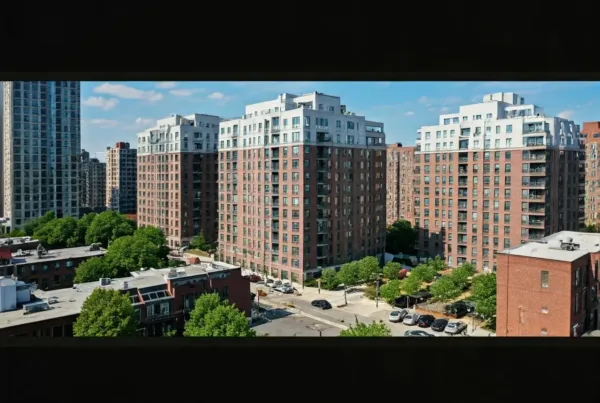Uncovering the secret differences between buying a condo and coop in NYC – what every prospective buyer needs to know!
Table of Contents
Introduction to NYC Living Options
When it comes to finding a place to live in New York City, there are various housing options to consider. From historic brownstones to modern high-rise buildings, the city offers a diverse range of living choices. One popular option that many people are drawn to is new condo developments.
These new condo developments are at the forefront of real estate trends in New York City, offering state-of-the-art amenities and a luxurious lifestyle. In this guide, we’ll explore what makes these new condo developments in NYC so enticing and why they are worth considering for your next home.
What is a Condo?
In New York City, one popular living option is a condominium, commonly referred to as a condo. But what exactly is a condo? Let’s break it down in simple terms.
Ownership and Rights
When you own a condo, you are purchasing a private residence within a larger building or community. This means you have the right to live in your unit as well as a shared interest in common areas such as the lobby, fitness center, or rooftop garden. Think of it as owning your own piece of a bigger puzzle.
Benefits of Buying a New Condo
Buying a new construction condo in NYC comes with its perks. These modern spaces often come equipped with state-of-the-art amenities like a concierge service, swimming pool, or a deck with stunning views. Additionally, since everything is brand new, you’ll have less maintenance to worry about compared to older buildings.
Understanding Coops
In New York City, one popular housing option besides condos is a cooperative, commonly known as a coop. So, what exactly is a coop and how does it differ from other types of homes?

Image courtesy of www.rocketmortgage.com via Google Images
Coop Ownership Structure
A coop is a unique type of housing where residents do not own their individual units. Instead, they own shares in the cooperative corporation that owns the entire building. This means that when you buy into a coop, you are buying shares in the cooperative, which entitles you to a proprietary lease on a specific unit within the building.
Additionally, living in a coop typically involves being part of a coop board, which is a group of residents elected to manage the cooperative. The board makes decisions on behalf of the coop community, such as setting rules and guidelines for living in the building.
Living in a Coop
Living in a coop comes with certain rules and regulations that residents must abide by. These rules can cover a wide range of topics, including pet policies, renovation restrictions, and noise regulations. Before buying into a coop, it’s important to review these rules to ensure they align with your lifestyle.
Comparing Condos to Coops
When it comes to choosing a place to live in New York City, you may come across two popular options: condos and coops. Let’s take a closer look at how these two types of housing differ.
Pros and Cons of Condos
A condo, short for condominium, is a type of housing where you own your individual unit within a larger building or complex. One of the advantages of owning a condo is that you have more control over your living space compared to renting. You can decorate and renovate your condo as you please, making it feel like a true home.
On the downside, owning a condo typically comes with monthly maintenance fees and may have restrictions on what you can do with your unit. Additionally, condos can be more expensive upfront compared to coops.
Pros and Cons of Coops
A coop, short for cooperative, is a different type of housing where you don’t technically own your unit. Instead, you own shares in the cooperative corporation that owns the building. Living in a coop often comes with strict rules and regulations set by the coop board, regulating everything from renovations to subletting.
One of the advantages of living in a coop is that it can be more affordable compared to condos. Coops also tend to have a stronger sense of community due to the shared ownership structure. However, the buying process for a coop can be more complex and may involve more scrutiny than buying a condo.
The New York City New Development Landscape
New York City is a bustling metropolis filled with a variety of housing options for residents. One popular choice among buyers is purchasing a new condo in one of the city’s many developments. Let’s take a look at what’s currently happening in the New York City new development landscape.
| Feature | Condo | Coop |
|---|---|---|
| Ownership | Unit owner owns the individual unit | Shareholder owns shares in the cooperative corporation |
| Financing | Mortgage financing is easier to obtain | Coop boards have strict rules for financing |
| Monthly Fees | Monthly common charges | Monthly maintenance fees |
| Approval Process | Less stringent approval process | Coop board approval required |
| Resale Restrictions | Less stringent resale restrictions | Coop board approval for resale |

Image courtesy of www.linkedin.com via Google Images
Trends in New Developments
In recent years, new condo and coop developments have been sprouting up all over New York City. From sleek high-rises with panoramic views to historic buildings with modern updates, there is a wide range of options for buyers to choose from. Some of the most sought-after neighborhoods for new developments include the trendy areas of Brooklyn and Queens, as well as the iconic streets of Manhattan.
Finding the Right Home
When searching for the perfect new condo or coop in New York City, it’s essential to consider a few key factors. Location is crucial, as proximity to transportation, schools, and amenities can greatly impact your daily life. Price is another significant consideration, as new developments in prime areas can come with a hefty price tag. Finally, make sure to look for features that match your lifestyle, whether it’s a state-of-the-art fitness center, a rooftop terrace, or a pet-friendly building.
Conclusion and Summary
In this article, we delved into the differences between new condos and coops in New York City, providing insight into the unique aspects of each housing option. Condos offer private ownership with shared amenities, while coops operate under a collective ownership structure with strict rules. Let’s summarize the key points discussed:
New Condos vs. Coops:
Condos provide individual ownership of a unit within a building, along with shared ownership of common areas, amenities, and facilities. On the other hand, coops involve owning shares in a corporation that owns the entire property, granting residents the right to occupy a specific unit within the building.
Benefits of Condos:
Buying a new condo comes with advantages such as modern amenities, lower maintenance responsibilities, and potentially easier resale opportunities. Additionally, condos often offer a sense of community within the building.
Benefits of Coops:
Living in a coop can foster a strong sense of community due to shared responsibilities and decision-making. Residents have a say in the building’s management and policies, which can create a unique living environment.
Regardless of whether you choose a new condo or a coop, both housing options offer distinct benefits and drawbacks, so it’s essential to consider your preferences, lifestyle, and financial situation before making a decision.
FAQs
Is it better to buy a condo or a coop in NYC?
Deciding between a condo and a coop in NYC depends on your preferences and financial situation. Condos offer individual ownership of your unit while also sharing common areas with other residents. Coops, on the other hand, involve owning shares in a corporation that owns the building, leading to stricter rules and potentially lower financial requirements. Consider factors like flexibility, affordability, and lifestyle to determine which option suits you best.
What should I look for in a new development condo?
When searching for a new development condo in NYC, it’s essential to consider various factors to find your perfect home. Location plays a significant role, so look for neighborhoods that align with your lifestyle and offer convenience. Additionally, check the amenities provided by the building, such as a gym, outdoor space, or security features. Research the reputation of the builder to ensure the quality and reliability of your new condo.
Begin your search and start earning cash back!
Generated by Texta.ai Blog Automation







